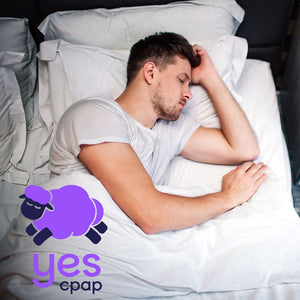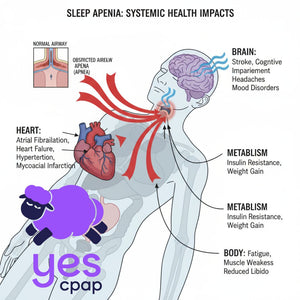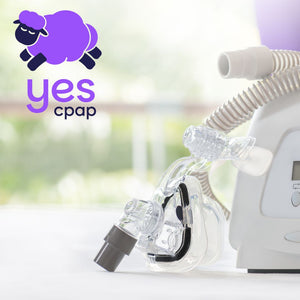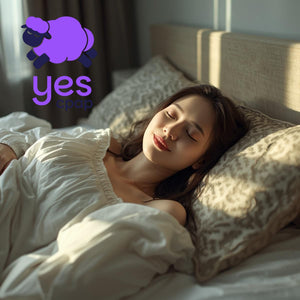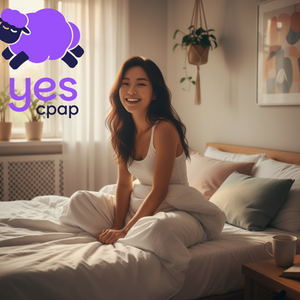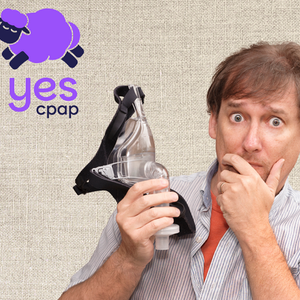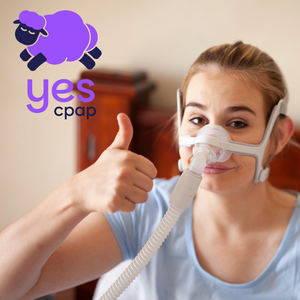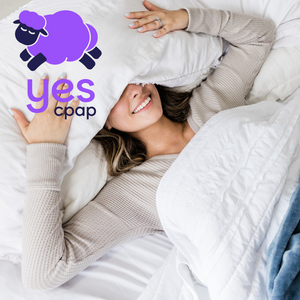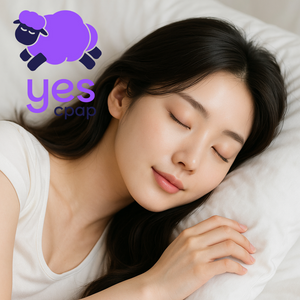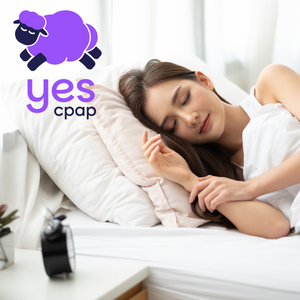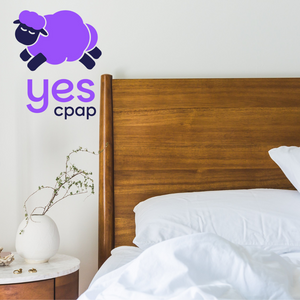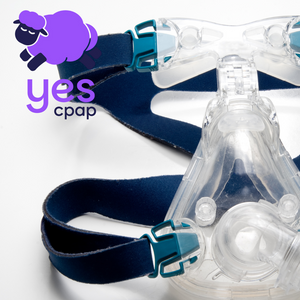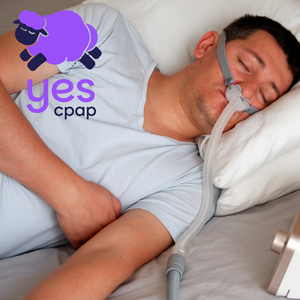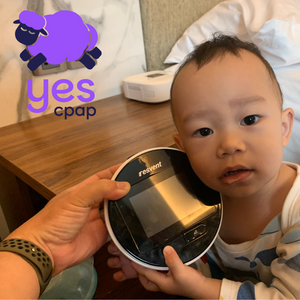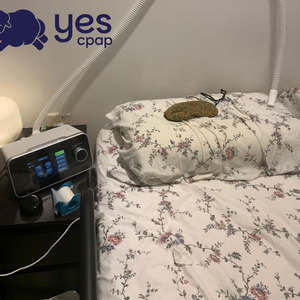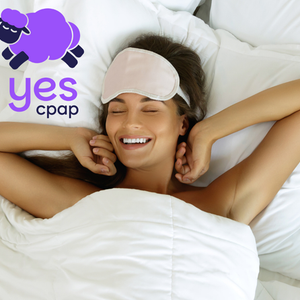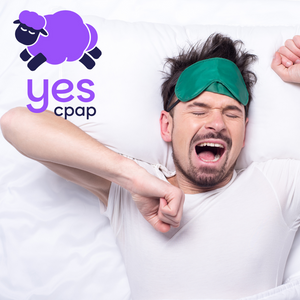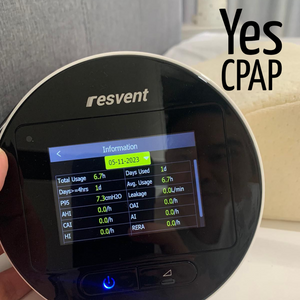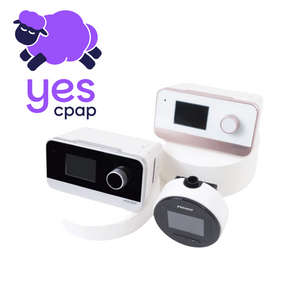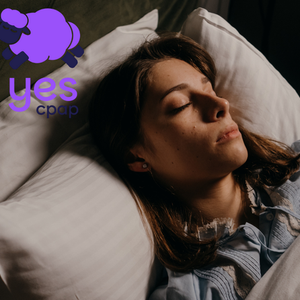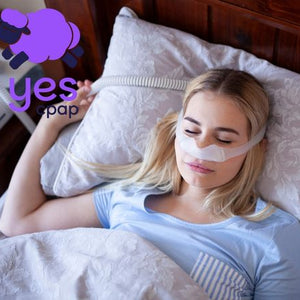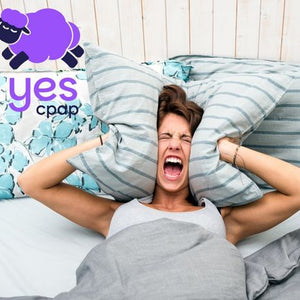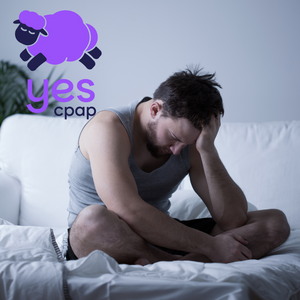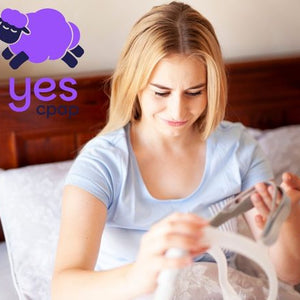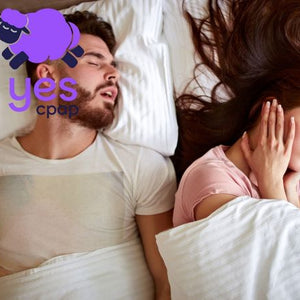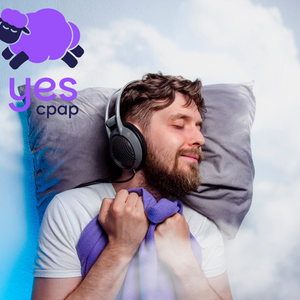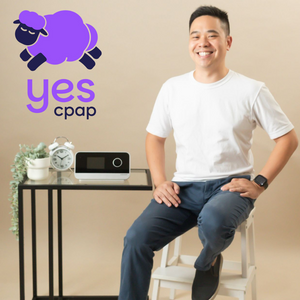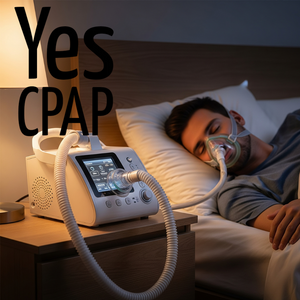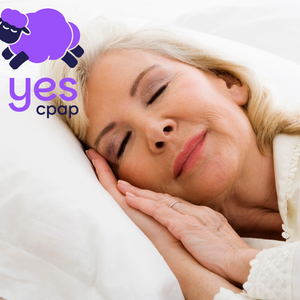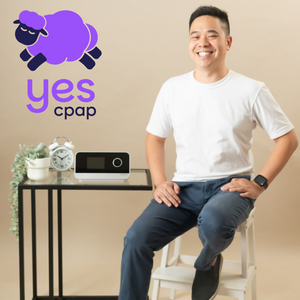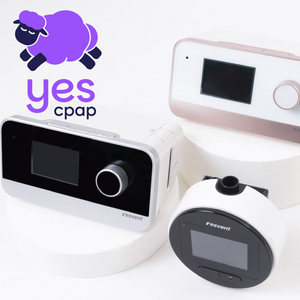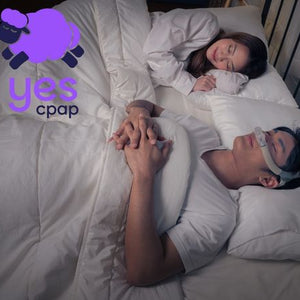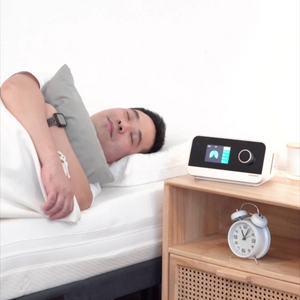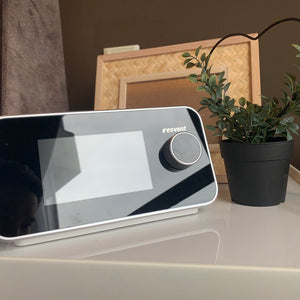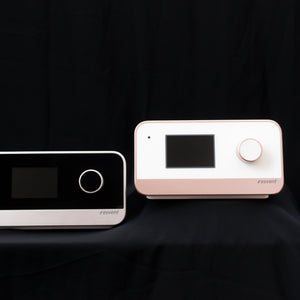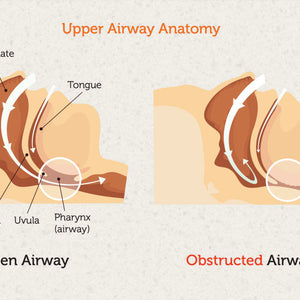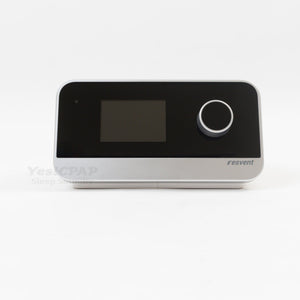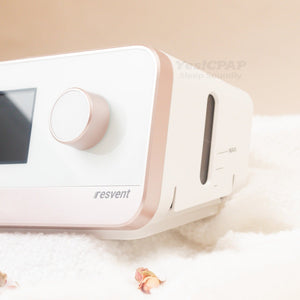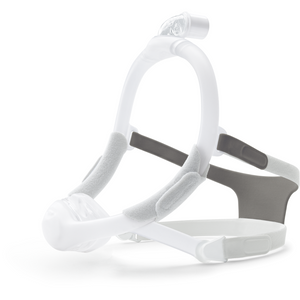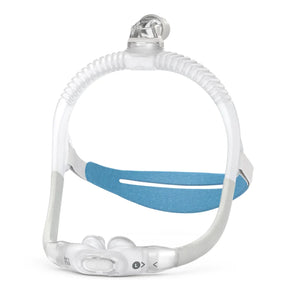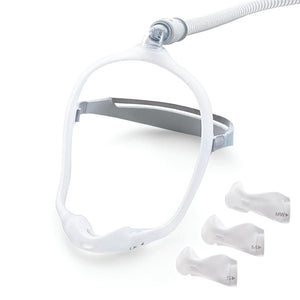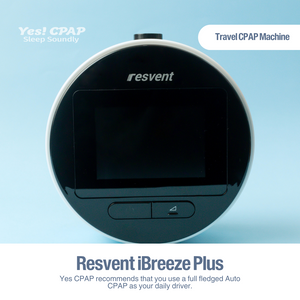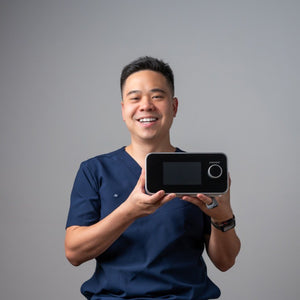The Complete Sleep Apnea Guide for Singapore: Evidence-Based Information & Treatment Solutions
Important Medical Disclaimer: This comprehensive guide provides educational information based on peer-reviewed scientific studies and medical literature. However, it should never replace professional medical consultation. Always seek qualified healthcare providers for accurate diagnosis and personalized treatment plans. Individual medical cases vary significantly, and professional medical guidance remains essential for proper care.
Sleep Apnea in Singapore: The Current Situation
Sleep apnea represents a significant public health challenge in Singapore. Current research reveals alarming statistics about this condition's prevalence among Singaporeans.
Critical Statistics for Singapore:
- 30.5% of Singaporeans have moderate-to-severe obstructive sleep apnea (OSA), with up to 91% remaining undiagnosed
- Local studies estimate that approximately 15% of Singapore's population is affected by sleep apnea
- 1 in 3 Singaporeans suffer from OSA, making it a common and potentially life-threatening disorder
- Only 13.8% of Singaporeans diagnosed with OSA adhere to CPAP therapy after 1 year
These statistics come from rigorous community-based studies published in leading medical journals. Therefore, sleep apnea represents one of Singapore's most underdiagnosed health conditions.
Understanding Sleep Apnea: What Happens During Sleep
Sleep apnea occurs when breathing repeatedly stops and starts during sleep. The term "apnea" literally means "without breath" in medical terminology.
The Sleep Apnea Process:
- Throat muscle relaxation: During sleep, throat muscles naturally relax
- Airway obstruction: In sleep apnea, muscles relax excessively, narrowing or blocking the airway
- Breathing cessation: Breathing stops for 10 seconds or longer
- Oxygen drop: Blood oxygen levels decrease significantly
- Brain response: The brain detects oxygen deficiency and briefly awakens the person
- Breathing restart: Normal breathing resumes, often with gasping or choking sounds
- Cycle repetition: This process repeats multiple times throughout the night
Most people don't remember these brief awakenings. However, they significantly disrupt sleep quality and overall health.
Types of Sleep Apnea: Understanding the Differences
Obstructive Sleep Apnea (OSA) represents the most common type, accounting for approximately 90% of cases. Physical blockage of the airway causes this condition when throat tissues collapse during sleep.
Central Sleep Apnea occurs when the brain fails to send proper breathing signals to respiratory muscles. This type affects the nervous system's control of breathing rather than involving physical airway obstruction.
Complex Sleep Apnea combines both obstructive and central types. Some patients develop this condition after beginning CPAP treatment for OSA.
Sleep Apnea in Singapore's Multiethnic Population
Singapore's diverse population shows interesting patterns in sleep apnea prevalence. Research published in Respirology found ethnic differences in sleep-disordered breathing prevalence among Chinese, Malay, and Indian populations in Singapore.
Key Ethnic Findings:
- Chinese Singaporeans: Higher prevalence compared to Indian populations
- Malay Singaporeans: Intermediate prevalence rates
- Indian Singaporeans: Lower prevalence rates, even after adjusting for age, sex, and BMI
However, all ethnic groups in Singapore show significantly higher sleep apnea rates compared to Western populations. This suggests that Asian populations may have unique anatomical or genetic factors that increase sleep apnea risk.
Children and Sleep Apnea in Singapore: A Growing Concern
Many parents wonder: Can children develop sleep apnea? The answer is definitely yes. Statistics show that 20% of normal children snore occasionally and 7% to 10% have habitual snoring. Moreover, about 1% of children may have sleep-related breathing problems.
Pediatric Sleep Medicine Services in Singapore:
National University Hospital's Division of Paediatric Pulmonary Medicine and Sleep provides comprehensive diagnostic and management services for respiratory and sleep disorders in infants, children, and teenagers. Additionally, KK Women's and Children's Hospital serves as a key referral center for breathing and sleep-related disorders.
Signs of Sleep Apnea in Children
In Babies and Toddlers:
- Noisy breathing during sleep
- Frequent nighttime awakenings
- Difficulty feeding or poor weight gain
- Sleeping in unusual positions
- Excessive sweating during sleep
In School-Age Children:
- Loud snoring most nights
- Witnessed breathing pauses during sleep
- Restless or fragmented sleep patterns
- Morning headaches upon waking
- Difficulty concentrating in school
- Hyperactive behavior during daytime hours
- Bedwetting in older children
Common Causes in Children:
- Enlarged tonsils and adenoids: The most frequent cause of childhood sleep apnea
- Obesity: Increasing concern in Singapore's pediatric population
- Genetic conditions: Certain hereditary factors increase risk
- Muscle weakness: Conditions affecting muscle tone
- Facial structure differences: Jaw or facial developmental variations
A study of pediatric polysomnography at a tertiary hospital in Singapore found that obstructive sleep apnea was the most common diagnosis in 49.6% of studies performed on children.
Adult Sleep Apnea Symptoms: Recognizing the Warning Signs
Nighttime Symptoms
Loud Snoring often represents the first sign that family members notice. However, not everyone who snores has sleep apnea, and not everyone with sleep apnea snores loudly.
Breathing Pauses during sleep create the most concerning symptom. Partners frequently observe moments when breathing stops completely, followed by gasping, choking, or snorting sounds.
Restless Sleep involves frequent tossing and turning throughout the night. People with sleep apnea rarely achieve deep, restorative sleep stages.
Night Sweats occur without obvious environmental causes. The physical stress of breathing difficulties triggers excessive perspiration.
Frequent Urination during nighttime hours particularly affects older adults with sleep apnea.
Dry Mouth upon waking results from mouth breathing throughout the night.
Daytime Symptoms
Excessive Sleepiness represents one of the most debilitating symptoms. People feel tired despite spending adequate time in bed, affecting work performance and daily activities.
Morning Headaches occur regularly upon waking and typically improve throughout the day. These headaches result from oxygen deprivation and carbon dioxide buildup during the night.
Difficulty Concentrating affects work, school, and personal tasks. Memory problems, decision-making difficulties, and reduced cognitive performance become increasingly problematic.
Mood Changes include increased irritability, anxiety, and depression symptoms that seem unexplained by other life factors.
High Blood Pressure frequently develops in people with untreated sleep apnea due to the cardiovascular stress of repeated oxygen deprivation.
Physical Risk Factors for Adults
Neck Size matters significantly. A neck circumference over 17 inches in men or 16 inches in women increases sleep apnea risk substantially.
Weight Distribution around the neck and upper body area contributes more to sleep apnea risk than overall body weight alone.
Facial Structure variations including small jaw, large tongue, or enlarged tonsils can predispose individuals to airway obstruction.
Age increases sleep apnea risk, particularly after 40 years old when muscle tone naturally decreases.
Gender plays a significant role, with men being twice as likely to develop sleep apnea compared to women. However, women's risk increases substantially after menopause.
Health Effects of Untreated Sleep Apnea
Sleep apnea affects every system in the body, not just sleep quality. The repeated oxygen deprivation and sleep fragmentation create cascading health problems.
Immediate Effects
- Daytime fatigue and excessive sleepiness
- Concentration and memory difficulties
- Mood changes and increased irritability
- Morning headaches
- Dry mouth and sore throat upon waking
- Decreased work or academic performance
Long-Term Health Consequences
Cardiovascular Problems: Sleep apnea significantly increases the risk of high blood pressure, heart attack, and stroke due to repeated drops in oxygen levels and frequent awakenings.
Diabetes Risk: The condition affects how the body processes glucose and insulin, potentially increasing Type 2 diabetes risk.
Weight Management Issues: Poor sleep quality disrupts hormones that control hunger and satiety, making weight management more difficult.
Depression and Anxiety: Sleep disruption contributes to mood disorders and reduces quality of life.
Immune System Impact: Chronic sleep deprivation weakens the body's ability to fight infections and recover from illness.
Motor Vehicle Accidents: Studies show that people with untreated sleep apnea have significantly higher rates of car crashes due to excessive daytime sleepiness.
Getting Diagnosed: Sleep Studies in Singapore
Professional diagnosis requires comprehensive evaluation by qualified healthcare providers. Singapore offers multiple pathways for sleep apnea assessment.
Medical Evaluation Process
Healthcare providers begin with detailed medical history and physical examination. They assess symptoms, sleep patterns, and examine the throat, neck, and nasal passages for potential obstructions.
Sleep Study Options
In-Laboratory Polysomnography provides the most comprehensive assessment. This overnight study monitors brain waves, eye movements, muscle activity, heart rhythm, breathing patterns, oxygen levels, and body position.
Home Sleep Tests offer convenient alternatives for appropriate patients. These portable devices monitor breathing patterns, oxygen levels, and respiratory effort in the familiar home environment.
For convenient, accurate assessment, consider the Home Sleep Test which provides clinical-grade evaluation in your comfortable home setting.
When to Seek Professional Evaluation
Consider consulting a healthcare provider if you experience:
- Loud snoring with witnessed breathing pauses
- Excessive daytime sleepiness despite adequate sleep time
- Morning headaches or dry mouth upon waking
- Difficulty concentrating at work or school
- High blood pressure or cardiovascular concerns
- Partner complaints about disruptive snoring
Sleep Specialists in Singapore: Where to Find Expert Care
Singapore offers comprehensive sleep medicine services across multiple healthcare institutions.
SingHealth Duke-NUS Sleep Centre represents the largest sleep disorders center in Singapore. The center provides integrated quality patient care, clinical education, and research across six clinical sites including Singapore General Hospital, Changi General Hospital, Sengkang General Hospital, KK Women's and Children's Hospital, and National Dental Centre Singapore.
Sleep Medicine Services by Hospital:
- Singapore General Hospital: The Sleep Centre provides the most comprehensive range of inpatient and outpatient services for sleep disorders evaluation and treatment in Singapore
- Changi General Hospital: Features integrated sleep medicine services with ENT and respiratory medicine specialists
- Sengkang General Hospital: Provides specialized diagnosis and management of wide-range sleep disorders as part of SingHealth Duke-NUS Sleep Centre
- National University Hospital: NUH Sleep Centre Services enable adults, adolescents, and children to achieve quality sleep through multidisciplinary approaches
Pediatric Sleep Services:
- KK Women's and Children's Hospital: Key referral center for breathing and sleep-related disorders in children
- National University Hospital: Division of Paediatric Pulmonary Medicine and Sleep for comprehensive pediatric sleep disorder management
For comprehensive information about sleep specialists and their expertise, visit Sleep Specialists in Singapore for detailed provider information.
Treatment Options: From Lifestyle Changes to Advanced Therapies
Treatment approaches vary based on sleep apnea severity, underlying causes, and individual patient factors.
CPAP Therapy: The Gold Standard Treatment
Continuous Positive Airway Pressure (CPAP) remains the most effective treatment for moderate to severe sleep apnea. The therapy delivers steady air pressure through a mask, keeping airways open throughout sleep.
Modern CPAP Features:
- Heated humidification to reduce dryness
- Ramp settings for gradual pressure increases
- Data tracking for usage monitoring
- Quiet operation for partner comfort
- Various mask styles for personalized comfort
For detailed information about CPAP options and technologies, explore CPAP Machines Singapore 2025 for comprehensive educational content.
CPAP Success Statistics in Singapore: Recent cost-effectiveness analysis found that CPAP therapy has a weighted 5-year adherence rate of 74.1% in Singapore studies. However, long-term adherence challenges exist, with only 21.4% of patients initially accepting CPAP treatment.
Alternative Treatment Options
BiPAP Therapy provides different pressure levels for inhalation and exhalation. This option helps patients who struggle with standard CPAP pressure settings.
Oral Appliances involve custom-made dental devices that reposition the jaw or tongue to maintain open airways during sleep. These work best for mild to moderate sleep apnea cases.
Upper Airway Stimulation represents a newer treatment option. Singapore General Hospital introduced hypoglossal nerve stimulation (HGNS) in May 2022 as an alternative for patients who cannot tolerate CPAP therapy.
Surgery remains an option for specific anatomical problems. Procedures may remove excess tissue, reposition anatomical structures, or address nasal breathing problems.
Lifestyle Interventions
Weight Management provides significant benefits for many patients. Even modest weight loss can substantially improve sleep apnea severity.
Sleep Position Training helps patients avoid sleeping on their backs, which often worsens sleep apnea symptoms.
Avoiding Alcohol and Sedatives particularly before bedtime helps prevent excessive muscle relaxation that worsens airway obstruction.
Comprehensive Sleep Apnea Collections and Resources
Understanding treatment options requires access to comprehensive resources and equipment collections.
CPAP Equipment Collections include various machine types, mask styles, and accessories designed for different patient needs and preferences. For detailed information about available collections, visit CPAP Collections to explore comprehensive treatment options.
Sleep Therapy Accessories encompass heated humidifiers, tube covers, mask cushions, and cleaning supplies that enhance treatment effectiveness and comfort. Explore CPAP Accessories for complete accessory information.
Travel CPAP Solutions enable patients to maintain therapy during travel, business trips, or vacations. Compact, portable options ensure treatment continuity regardless of location. Review Travel CPAP Options for convenient travel solutions.
Mask Collections provide various interface options including nasal masks, full-face masks, and nasal pillows designed for different facial structures and comfort preferences. Discover CPAP Mask Collections for personalized mask selection.
Sleep Study Solutions offer home-based testing options that provide accurate diagnosis in comfortable home environments. Learn more about Home Sleep Testing for convenient diagnostic options.
Nutrition Considerations for People with Sleep Apnea
While dietary changes alone cannot treat sleep apnea, maintaining good nutrition may support overall health management.
Foods That May Support General Health
Some research suggests that certain foods may help reduce inflammation, though more studies are needed to understand their specific effects on sleep apnea.
Foods Rich in Omega-3 Fatty Acids such as salmon, mackerel, and sardines may have anti-inflammatory properties that could support overall health.
Antioxidant-Rich Foods including berries, leafy greens, nuts, and seeds may help combat oxidative stress, though their direct impact on sleep apnea requires further research.
Weight Management Considerations
Since excess weight may contribute to sleep apnea severity in some people, healthcare providers sometimes recommend weight management as part of overall treatment planning.
Balanced Nutrition including lean proteins, complex carbohydrates, and fiber-rich foods may support healthy weight management when combined with appropriate medical care.
Foods That May Interfere with Sleep Quality
Alcohol especially before bedtime, may relax throat muscles and potentially worsen breathing difficulties during sleep.
Large Meals close to bedtime may cause discomfort and could potentially affect breathing patterns.
High-Sodium Foods might contribute to fluid retention, though their specific impact on sleep apnea symptoms needs more research.
Healthcare providers can offer personalized dietary guidance based on individual health needs and medical conditions.
Exercise and Physical Activity Benefits
Regular physical activity offers multiple benefits for people with sleep apnea, including improved cardiovascular health and better sleep quality.
Effective Exercise Types
Cardiovascular Exercise strengthens the heart and lungs while supporting weight management goals. Walking, swimming, cycling, dancing, and hiking all provide excellent cardiovascular benefits.
Strength Training builds muscle mass, which supports weight management and overall health. Bodyweight exercises, resistance bands, weight lifting, and yoga with strengthening poses all contribute to better fitness.
Breathing Exercises may strengthen respiratory muscles and improve airway function. Deep breathing techniques, diaphragmatic breathing, pursed lip breathing, and even singing or playing wind instruments can help.
Exercise Guidelines
Start slowly with 10-15 minutes of activity if you're currently sedentary. Gradually increase duration and intensity over time. Aim for at least 150 minutes of moderate exercise per week, spread across several days.
Avoid vigorous exercise within 3 hours of bedtime, as it can interfere with sleep quality. Always listen to your body and adjust intensity or duration if you feel excessively tired.
CPAP Therapy Costs and Accessibility in Singapore
Understanding treatment costs helps patients make informed decisions about sleep apnea management.
CPAP Machine Costs: Auto-titrating CPAP devices cost S$1,500-S$2,000 in Singapore, which represents nearly half the median monthly income of the average Singaporean worker.
Treatment Cost-Effectiveness: Recent economic analysis found that CPAP therapy is highly cost-effective in Singapore, with an incremental cost-effectiveness ratio of $13,822 per disability-adjusted life year averted.
Home Sleep Test vs. In-Lab Study: Patients diagnosed through home sleep tests have total annual costs of $625 compared to $856 for those diagnosed through inpatient sleep studies, representing a 27% cost reduction per patient per year.
Insurance and Healthcare Coverage: Unlike many Western healthcare systems, CPAP machines in Singapore typically require out-of-pocket payment since they're not usually covered by state or private insurance plans.
Managing Sleep Apnea in Singapore's Climate
Singapore's tropical climate and high humidity create unique considerations for sleep apnea management.
Humidity Benefits for CPAP Users: Singapore's natural humidity can actually benefit CPAP users by reducing dryness that commonly occurs with therapy. However, proper equipment maintenance becomes crucial in high-humidity environments.
Air Quality Considerations: Singapore's urban environment and occasional haze episodes may affect sleep quality and respiratory health. Using air purifiers and maintaining good indoor air quality supports better sleep.
Temperature Control: Singapore's warm climate makes bedroom temperature control important for quality sleep. Maintaining cool, comfortable sleeping environments supports better sleep quality.
Living Successfully with Sleep Apnea Treatment
Long-term success with sleep apnea treatment requires commitment, proper equipment maintenance, and ongoing medical support.
CPAP Success Strategies
- Use the machine every night, including naps
- Maintain clean equipment according to manufacturer guidelines
- Work with healthcare providers to address any problems promptly
- Practice patience during the adjustment period
- Join support groups or online communities for encouragement
Regular Follow-Up Care
Regular medical check-ups ensure treatment remains effective over time. Healthcare providers may adjust treatment plans based on:
- Symptom improvement or changes
- Equipment data and usage patterns
- Changes in weight or overall health status
- Treatment tolerance and satisfaction levels
Lifestyle Integration
Successful sleep apnea management involves integrating healthy practices into daily life including regular exercise, stress management, maintaining social support, and adhering to consistent sleep schedules.
The Future of Sleep Apnea Treatment in Singapore
Singapore continues advancing sleep medicine through research, education, and innovative treatment options.
Research Initiatives: The SingHealth Duke-NUS Sleep Centre conducts collaborative clinical research in sleep and circadian medicine, contributing to global understanding of sleep disorders.
Educational Programs: Regular sleep medicine courses and symposiums cater to specialists and sleep technologists, improving knowledge through continuing medical education.
Technology Advances: New treatment options including upper airway stimulation and improved CPAP technologies continue expanding treatment choices for patients.
Take Action: Your Next Steps
If you suspect sleep apnea, taking prompt action can prevent serious health complications and dramatically improve quality of life.
Step 1: Symptom Assessment
Document your symptoms for 1-2 weeks including bedtime and wake times, nighttime awakenings, daytime sleepiness levels, morning headaches, and partner observations about snoring or breathing pauses.
Step 2: Risk Factor Evaluation
Honestly assess your personal risk factors including current weight, family history, alcohol and smoking habits, medications affecting sleep, and existing medical conditions like high blood pressure or diabetes.
Step 3: Professional Testing
Obtain accurate diagnosis through professional sleep testing. The Home Sleep Test provides convenient, comprehensive evaluation using clinical-grade monitoring in your comfortable home environment.
Step 4: Medical Consultation
Schedule appointments with healthcare providers experienced in sleep disorders. Bring your symptom documentation and test results to discuss treatment options thoroughly.
Step 5: Treatment Implementation
Work with medical professionals to implement appropriate treatment approaches, which might include CPAP therapy, lifestyle modifications, or other interventions based on your specific needs and preferences.
Conclusion: Your Path to Better Sleep and Health
Sleep apnea represents a serious but highly treatable condition affecting hundreds of thousands of Singaporeans. With Singapore's excellent medical infrastructure and growing awareness of sleep disorders, effective treatment has never been more accessible.
The key to success lies in early recognition, proper diagnosis, and committed treatment adherence. Whether you're experiencing symptoms yourself or concerned about a family member, taking action now can prevent serious health complications and restore quality sleep.
Singapore's multidisciplinary sleep medicine specialists, advanced diagnostic facilities, and comprehensive treatment options provide the foundation for successful sleep apnea management. However, the first step begins with you – recognizing symptoms and seeking appropriate medical evaluation.
Remember that sleep apnea affects each person differently, and treatment approaches must be individualized. Working closely with qualified healthcare providers ensures the best possible outcomes for your specific situation.
Your journey to better sleep and improved health can begin today. Don't let another night of disrupted sleep compromise your well-being, relationships, or daily performance. Take the first step toward comprehensive sleep apnea evaluation and treatment.
Scientific References
- Recognising sleep apnoea. Singapore Med J. 2015 Mar;56(3):129–132. PMC4371191
- Tan A, Cheung YY, Yin J, et al. Prevalence of sleep-disordered breathing in a multiethnic Asian population in Singapore: A community-based study. Respirology. 2016 Jul;21(5):943-50
- Singapore General Hospital. Don't sleep on it: SGH offers new sleep apnoea treatment option. March 13, 2023
- KK Women's and Children's Hospital. Respiratory Medicine Services. Pediatric polysomnographic studies analysis
- Meng F, Ang GY, Chang RRY, et al. Cost-effectiveness analysis of continuous positive airway pressure treatment for obstructive sleep apnea in Singapore. J Sleep Res. 2025 Apr;34(2):e14326
- Tan B, Tan A, Chan YH, et al. Adherence to Continuous Positive Airway Pressure therapy in Singaporean patients with Obstructive Sleep Apnea. Am J Otolaryngol. 2018;39:501-6
Final Medical Reminder: This comprehensive educational guide provides general information about sleep apnea based on current medical literature and Singapore-specific research. Individual cases vary significantly, and this content should never replace professional medical advice. Always consult qualified healthcare providers for personalized diagnosis, treatment planning, and ongoing medical care.
For additional educational resources about sleep apnea diagnosis and treatment, visit Sleep Apnea Singapore Guide for detailed information about the diagnostic process and treatment pathways.




